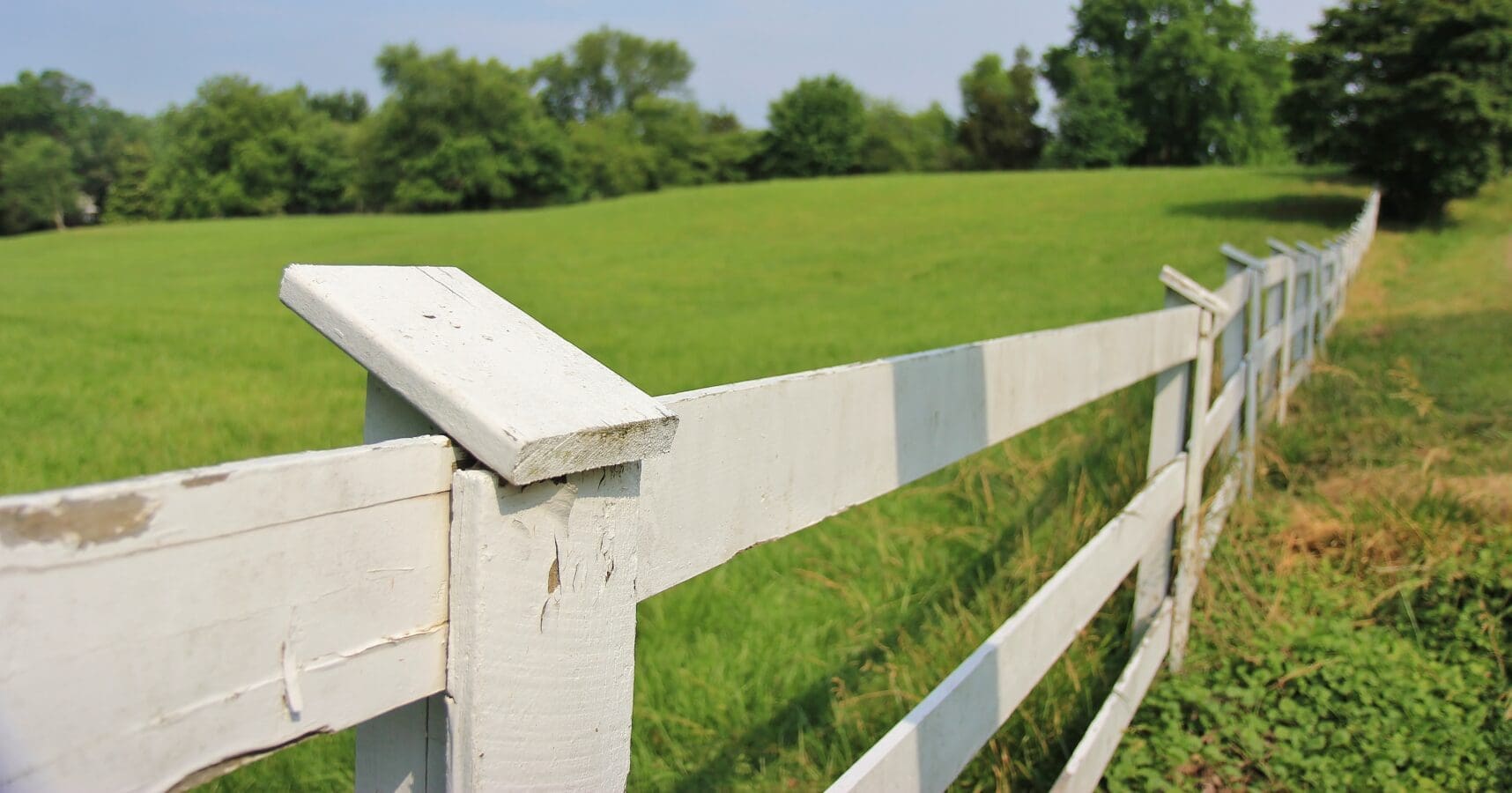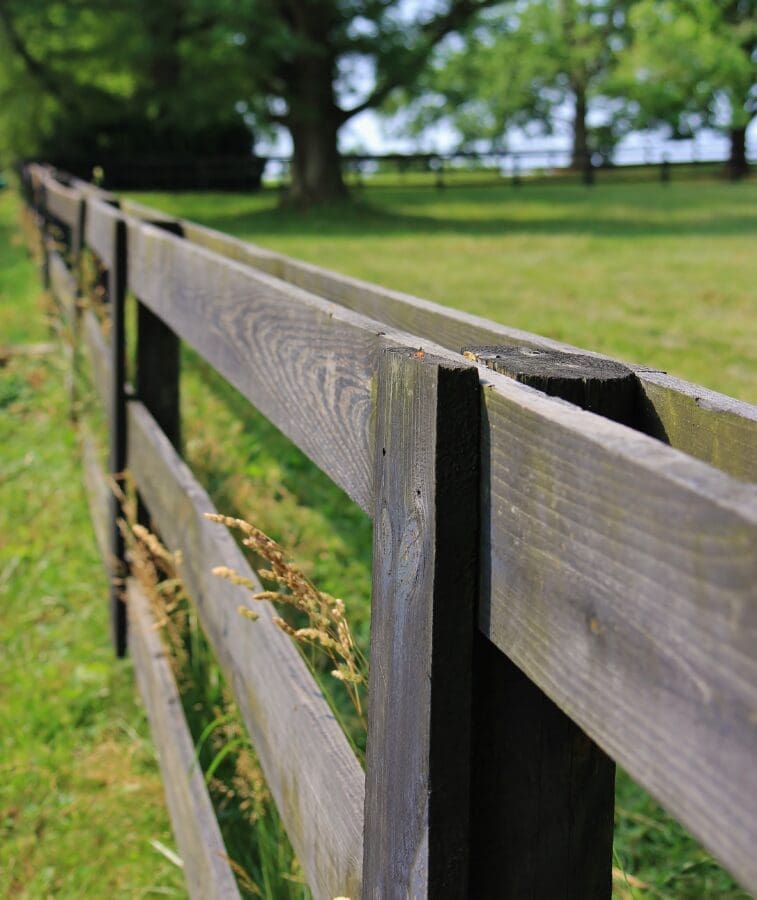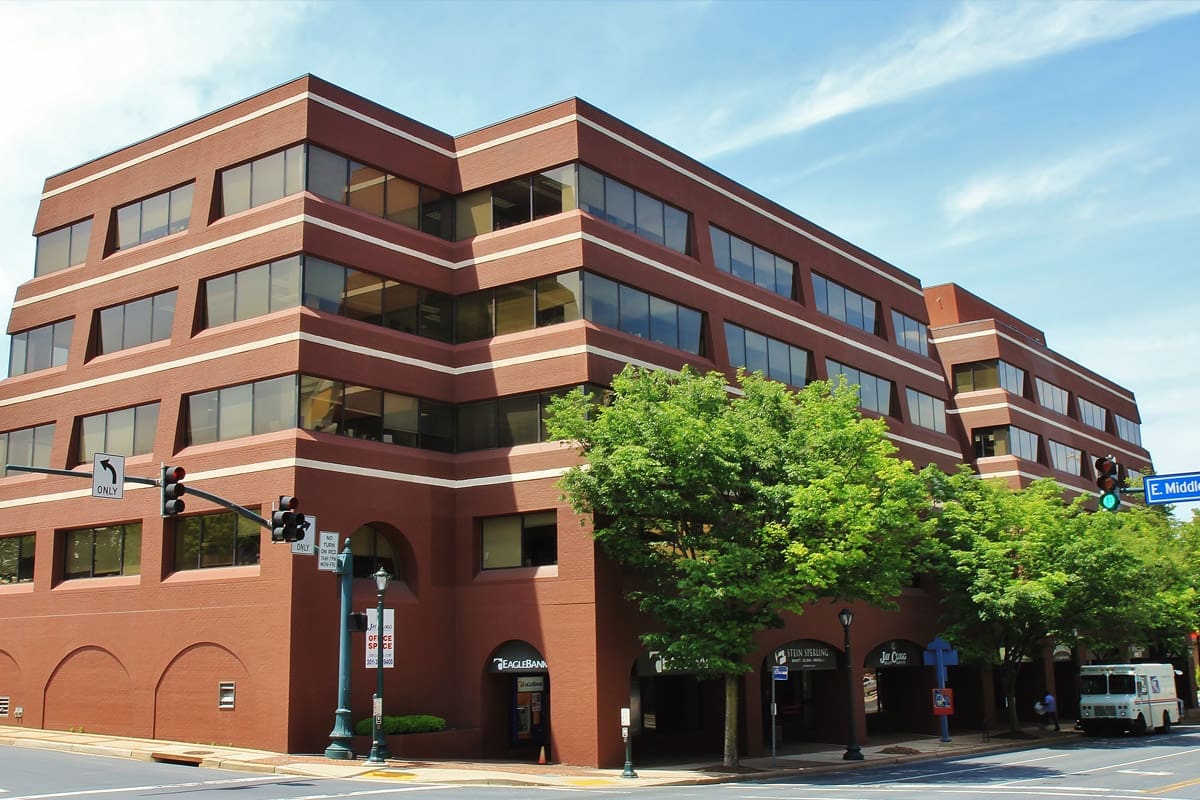
Fence Laws and Adverse Possession in Maryland
 Lawsuits regarding property disputes, property boundaries, adverse possession, quiet title, and fence laws in Maryland are not uncommon. These Maryland property lawsuits and property boundary legal disputes often involve neighbors questioning the true legal boundaries of their properties and their fence lines. In Maryland, these fence law and legal property boundary disputes generally either involve (a) the parties needing to obtain proof or legal assurance of their true properties lines, or (b) a legal dispute regarding whether a new owner of the property exists as a result of Maryland’s property and fence laws, usually involving adverse possession. In Maryland, there are certain property laws, fence laws, quiet title laws, and adverse possession laws which can permit a property possessor in Maryland to take rightful and legal possession of a portion of property which was not originally part of any property that the possessor legally purchased or legally received. A Maryland adverse possession attorney can be invaluable to assist property owners in such property line disputes.
Lawsuits regarding property disputes, property boundaries, adverse possession, quiet title, and fence laws in Maryland are not uncommon. These Maryland property lawsuits and property boundary legal disputes often involve neighbors questioning the true legal boundaries of their properties and their fence lines. In Maryland, these fence law and legal property boundary disputes generally either involve (a) the parties needing to obtain proof or legal assurance of their true properties lines, or (b) a legal dispute regarding whether a new owner of the property exists as a result of Maryland’s property and fence laws, usually involving adverse possession. In Maryland, there are certain property laws, fence laws, quiet title laws, and adverse possession laws which can permit a property possessor in Maryland to take rightful and legal possession of a portion of property which was not originally part of any property that the possessor legally purchased or legally received. A Maryland adverse possession attorney can be invaluable to assist property owners in such property line disputes.
Adverse Possession is a legal term or cause of action in Maryland (and certain other states) whereby an individual who is not the true titled owner of real property (1) can obtain a valid title to that possessed property by the passage of time through their possession of the property over that time and/or (2) become immune from a repossession lawsuit by the original property owner. Often adverse possession matters involve fence-line disputes between neighbors and can involve a party seeking a quiet title action against their neighbor.
The Maryland legislature has codified two different types of adverse possession in the Maryland Code which are enforced by the Maryland Circuit Court and Maryland Courts of Appeal.
First, Maryland’s affirmative adverse possession is codified through the right of a quite title action in Maryland Code, Real Property Article § 14-108. Through Section 14-108, the Maryland legislature has decided that a Maryland property claimant may establish adverse possession by proving either color of title or claim of right. This Maryland adverse possession law means that a party can possibly gain possession of another party’s property through certain types of possession of the property. Specifically, Maryland courts have declared that a person seeking to obtain a property (or non-titled fence line) by quiet title / adverse possession must: “show that such possession was actual, notorious, exclusive, hostile, under claim of title or ownership, and continuous or uninterrupted for the period of twenty years.” (Gore v. Hall).
Second, Maryland’s defensive adverse possession is codified through Maryland’s statute of limitations code section in Maryland Code, Courts and Judicial Proceedings Article § 5-103. Through defensive adverse possession in Maryland, if a property owner has not filed a property lawsuit or fence lawsuit against the property possessor or entered the land themselves, the property owner cannot sue the party in possession of the land to re-possess the property. In other words, after twenty (20) years, the property “squatter” is immune from being forced to vacate the squatted property. Legally, Section 5-103 bars Maryland lawsuits for recovery of possession of property (or altering of a fence line) after twenty (20) years of a property possessor’s adverse possession of the property. Basically, the fence law or adverse possession of Section 5-103 only bars an action if the defendant in said action has meet the legal standard for adverse possession of the property at issue continuously for twenty (20) years. A Maryland adverse possession lawyer can assist clients with understanding these statutory requirements.
 Two important legal points from Maryland courts interpreting both types of adverse possession in Maryland. First, to “establish title by adverse possession, the claimant must show possession of the claimed property for the statutory period of 20 years. Such possession must be actual, open, notorious, exclusive, hostile, under claim of title or ownership, and continuous or uninterrupted.” (Costello v. Staubitz). Thus, an adverse possession lawyer asserting adverse possession in Maryland must prove each of those elements to succeed. Second, “the burden of proving title by adverse possession is on the claimant [seeking adverse possession].” (Costello v. Staubitz). Thus, a Maryland property possessor seeking to show adverse possession must establish those facts in court by a preponderance of the evidence. And in evaluating a Maryland adverse possession claim, the key question for the court is whether the party seeking adverse possession has proved the elements “based on the claimant’s ‘objective manifestation’ of adverse use, rather than on the claimant’s subjective intent.” (Barchowsky v. Silver Farms, Inc.).
Two important legal points from Maryland courts interpreting both types of adverse possession in Maryland. First, to “establish title by adverse possession, the claimant must show possession of the claimed property for the statutory period of 20 years. Such possession must be actual, open, notorious, exclusive, hostile, under claim of title or ownership, and continuous or uninterrupted.” (Costello v. Staubitz). Thus, an adverse possession lawyer asserting adverse possession in Maryland must prove each of those elements to succeed. Second, “the burden of proving title by adverse possession is on the claimant [seeking adverse possession].” (Costello v. Staubitz). Thus, a Maryland property possessor seeking to show adverse possession must establish those facts in court by a preponderance of the evidence. And in evaluating a Maryland adverse possession claim, the key question for the court is whether the party seeking adverse possession has proved the elements “based on the claimant’s ‘objective manifestation’ of adverse use, rather than on the claimant’s subjective intent.” (Barchowsky v. Silver Farms, Inc.).
Maryland courts have even made specific rulings about Maryland fence laws and fence lines related to adverse possession. The Maryland Court of Appeals has specifically ruled that “The existence of a visible line of demarcation ordinarily does not constitute evidence of adverse possession when: it was created by a record owner, for the record owner’s own purposes, within the record owner’s land.” (Costello v. Staubitz; see also Storr v. James).
Consequently, in Maryland, adverse possession is a legal method by which someone who has possessed a property or altered a fence line can petition a Maryland court or defend a lawsuit and retain their possession of that property. A Maryland adverse possession attorney can assist individuals faced with these issues as to their true legal rights. Our Maryland adverse possession attorneys regularly meet with clients in either of our Maryland (Rockville and Bethesda) Offices.
Regarding Maryland fence laws, it is also important to note that within the Maryland Code, Code of Maryland Regulations, and most Maryland County Codes, fences are required to be set back off the true property line by a certain amount. Consult with the laws/regulations in your jurisdiction to ensure that your fence is located property. An experienced Maryland adverse possession attorney / quiet title attorney can help property owners with these types of issues.
 The property litigation attorneys and civil litigation attorneys at Longman & Van Grack regularly work with individuals and businesses regarding all types of Maryland property legal disputes, including adverse possession, quiet title, boundary disputes, fence laws, and fence lawsuits. Our Maryland adverse possession lawyers have the experience to address all types of Maryland real property disputes in court and out of court. If you are an individual involved in a real estate lawsuit, fence dispute, neighbor dispute, tree dispute, or Maryland property dispute, call Longman & Van Grack’s property attorneys and adverse possession lawyers today at (301) 291-5027 to schedule a consultation at our Maryland (Rockville and Bethesda) Offices. Our Maryland property attorneys and Maryland adverse possession attorneys have experience addressing Maryland adverse possession disputes, Maryland quiet title actions, and adverse possession lawsuits in Montgomery County Circuit Court (located in Rockville, MD), Frederick County Circuit Court (located in Frederick, MD), Howard County Circuit Court (located in Ellicott City, MD), Prince George’s County Circuit Court (located in Upper Marlboro, MD), and Baltimore County Circuit Court (located in Towson, MD).
The property litigation attorneys and civil litigation attorneys at Longman & Van Grack regularly work with individuals and businesses regarding all types of Maryland property legal disputes, including adverse possession, quiet title, boundary disputes, fence laws, and fence lawsuits. Our Maryland adverse possession lawyers have the experience to address all types of Maryland real property disputes in court and out of court. If you are an individual involved in a real estate lawsuit, fence dispute, neighbor dispute, tree dispute, or Maryland property dispute, call Longman & Van Grack’s property attorneys and adverse possession lawyers today at (301) 291-5027 to schedule a consultation at our Maryland (Rockville and Bethesda) Offices. Our Maryland property attorneys and Maryland adverse possession attorneys have experience addressing Maryland adverse possession disputes, Maryland quiet title actions, and adverse possession lawsuits in Montgomery County Circuit Court (located in Rockville, MD), Frederick County Circuit Court (located in Frederick, MD), Howard County Circuit Court (located in Ellicott City, MD), Prince George’s County Circuit Court (located in Upper Marlboro, MD), and Baltimore County Circuit Court (located in Towson, MD).
